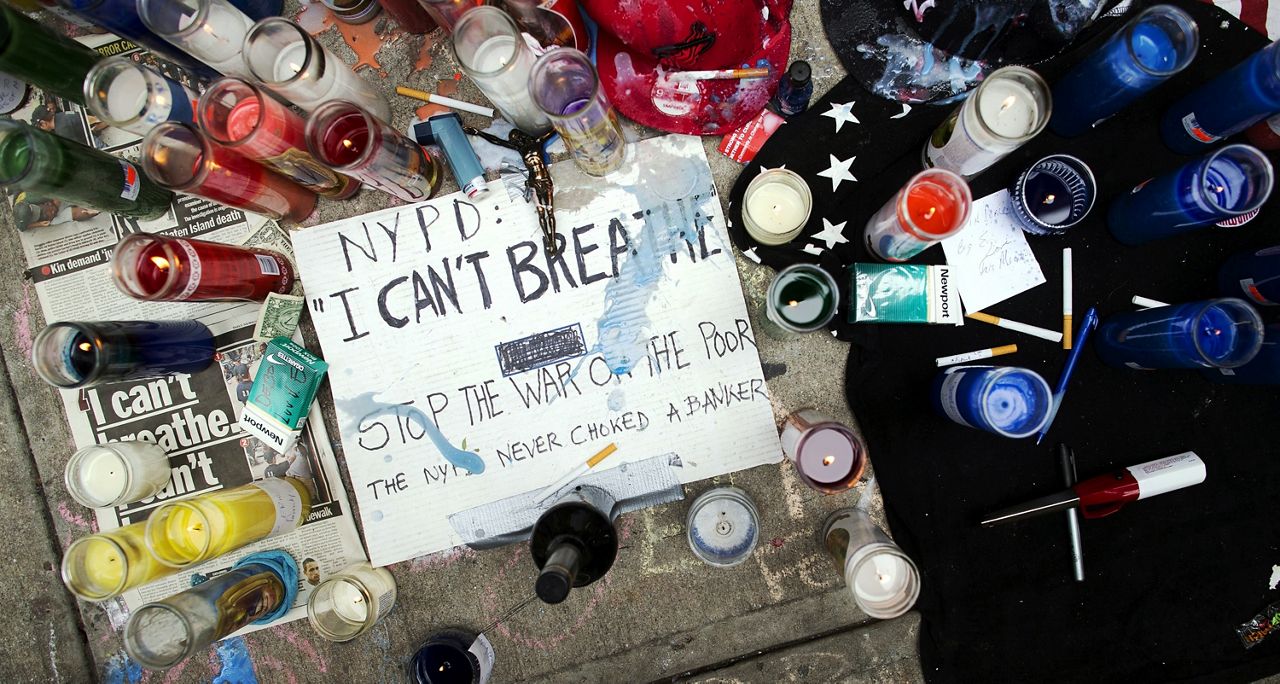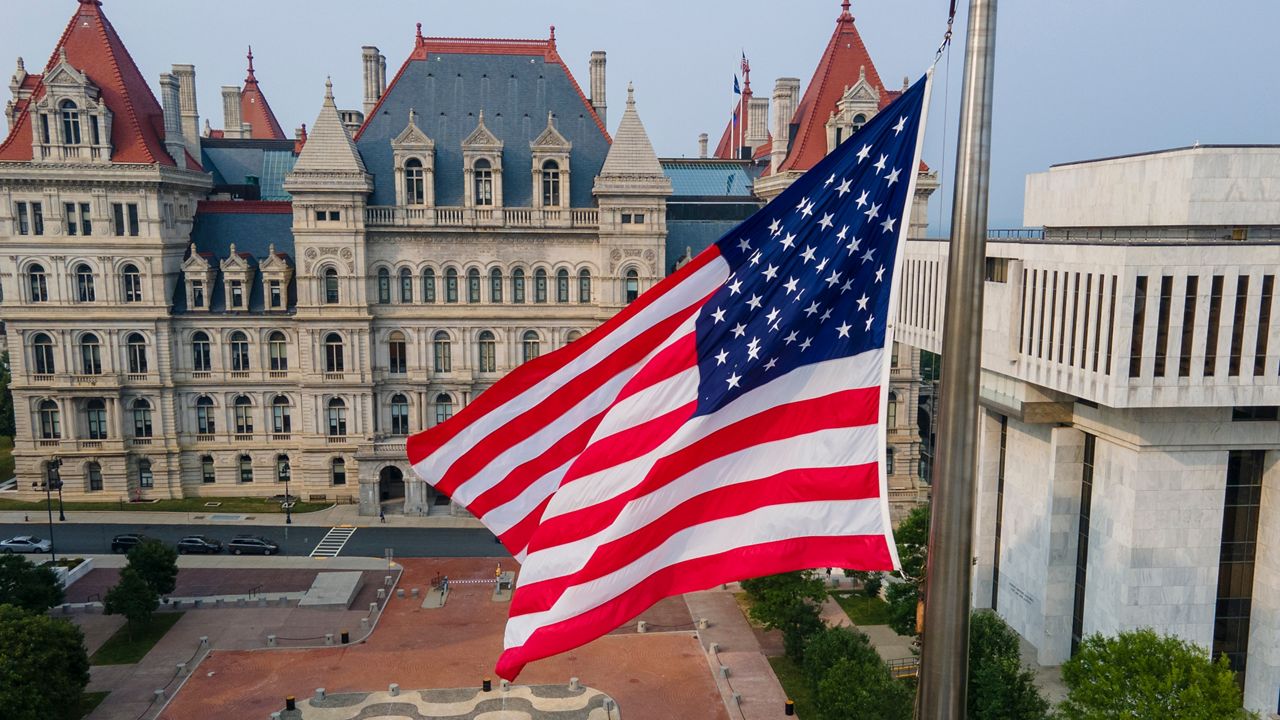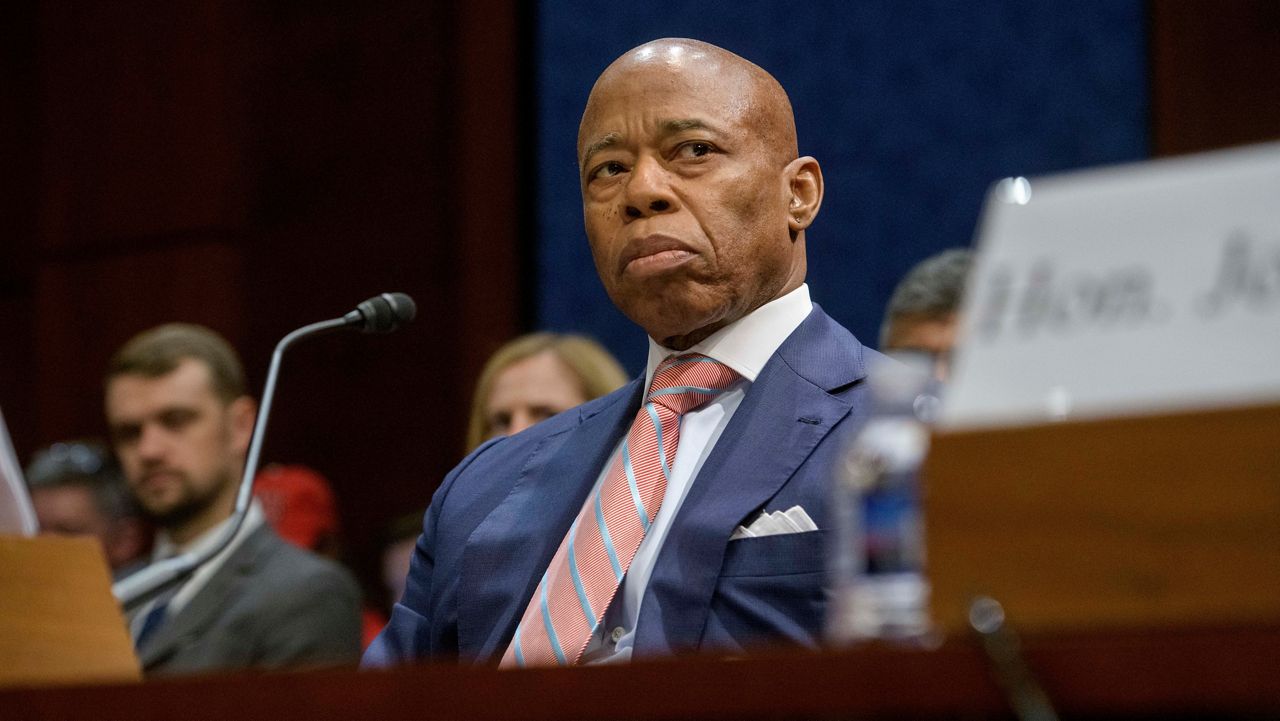NEW YORK CITY — The city’s largest police unions filed suit this week challenging New York’s newly enacted chokehold ban, court records show.
A coalition of unions filed in Manhattan Criminal Court Wednesday a 24-page suit against New York City, arguing Section 10-181 contradicts state law and violates due process, court records show.
“This punitive municipal law threatens police officers with fines and imprisonment for doing their jobs in good faith with no intent to harm a suspect,” the complaint reads. “[It] as been widely criticized by district attorneys, law enforcement officials and other experts in law enforcement.”
The law — which criminalizes cops’ restriction of air or blood flow via chokehold or sitting, kneeling or standing on a person’s chest or back — was signed by Mayor Bill de Blasio on July 15.
It came as part of a police reform package spurred by the 2014 death of Eric Garner — who died gasping, “I can’t breathe” — and the the recent death of George Floyd under the knee of a Minneapolis cop.
The mayor declined to comment on the suit during his press briefing Thursday, but argued state law protects New York officers from penalization in life-or-death circumstances.
“There is state law that protects officers who are duly and appropriately doing their job,” de Blasio. “It is the law, everyone needs to follow through on it.”
The suit comes as New York City faces an uptick in violent crime that de Blasio links to the coronavirus shutdown— which left at least 1.3 million New Yorkers unemployed and brought the criminal court system to a halt — and for which NYPD top brass blame police reform legislation.
New York City’s Law Department spokesperson Nicholas Paolucci said in an email, “We are reviewing the lawsuit.”
Police unions’ attorney Anthony Cole argued officers do not know how to follow the “unconstitutionally vague” law, which does not clarify which specific arrest tactics are now banned.
“Section 10-181 already has had a chilling effect on the ability of officers to carry out their functions consistent with their Department’s procedures and State law,” the complaint reads.
“This chilling effect places officers and the public in harm’s way.”








